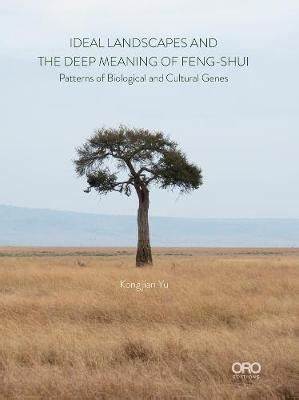|
| ผู้แต่ง |
Yu, Kongjian author. | | ชื่อเรื่อง |
Ideal landscapes and the deep meaning of Feng-shui / Kongjian Yu. | | ISBN |
978-194-35-3275-9
| | เลขเรียก |
712 Y943i | | ครั้งที่พิมพ์ |
First edition. | | ลักษณะทางกายภาพ |
156 pages : illustrations (some color), maps ; 27 cm | | หมายเหตุ |
Translated from the Chinese edition published by The Commercial Press, Beijing, in 1998. | | หมายเหตุ |
The ideal model of Feng-shui
-- The same structure with no coincidence
-- From Marmot to Robinson Crusoe
-- The satisfactory model of primitive Chinese habitations
-- The basin experience influence to the model of Feng-shui in the culture of Chines agriculture
-- The interpretation system of Fengshui concerning the sense of fortune in landscape. | | หมายเหตุ |
Summary: ^"This is a book about ideal landscapes and Feng-Shui. Using evolutionary and anthropological approaches, Peking University professor Kongjian Yu, who holds a doctorate degree in Design from Harvard, explores the origin, structure, and meanings of Feng-Shui in juxtaposition to the ideal landscape models in Chinese culture. Using illustrative site observations and literature, Yu argues that Feng-Shui landscapes share similar structures with other Chinese ideal landscapes--the implications of which are deconstructed into terms of geography, anthropology, ecology, and philosophy. As a landscape architect and urbanist, Professor Yu respects the role of Feng-Shui in the making of places, yet still is in opposition to its superstitious nature. Well illustrated and poetically written, this book is a must-read for those who are interested in Feng-Shui, as well as for those who care about their daily living environment in general--especially those who practice architecture, landscape architecture, and urbanism.^" -- Publisher^'s description | | หัวเรื่อง |
Landscapes--China. | | หัวเรื่อง |
Feng shui. | | หัวเรื่อง |
Landscapes--Philosophy. | | หัวเรื่อง |
Landscapes--Social aspects. | | หัวเรื่อง |
Landscape architecture--China. |
|

 แสดงรายละเอียดบรรณานุกรม
แสดงรายละเอียดบรรณานุกรม ขอยืม
ขอยืม


